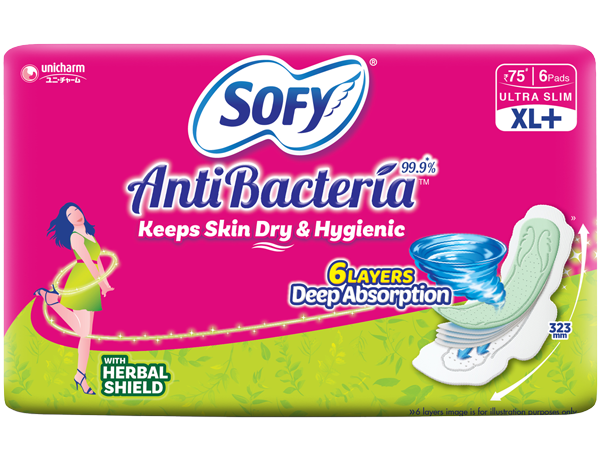Understanding Period Knowledge: Empowering Women with Awareness and Confidence

When it comes to women’s health, period knowledge plays a vital role in promoting confidence, hygiene, and well-being. Yet, menstruation remains a topic clouded by stigma and misinformation in many parts of the world. Developing accurate knowledge about periods helps women manage their cycles comfortably, recognize potential health issues early, and live a more balanced life.
What Exactly Is Comprehensive Period Knowledge?
Period knowledge extends far beyond simply knowing about monthly bleeding. It refers to a holistic understanding of the entire menstrual cycle—typically 21 to 35 days—and the profound changes that occur within the body. This awareness encompasses the intricate dance of hormones, specifically estrogen and progesterone, that drive the four main phases:
- Menstruation: The shedding of the uterine lining.
- Follicular Phase: Preparation for ovulation, where an egg-containing follicle matures.
- Ovulation: The release of the mature egg.
- Luteal Phase: The uterine lining thickens in preparation for a potential pregnancy.
This detailed knowledge empowers women to track their ovulation, understand their fertility windows, and anticipate the emotional and physical effects, such as varying energy levels, skin changes, or shifts in libido. Unfortunately, where menstruation is still treated as taboo, young girls often receive information that is incomplete, inaccurate, or delivered in a fearful context. This educational gap is a critical issue that can tragically lead to poor menstrual hygiene management (MHM), intense fear, deep embarrassment, and a delay in seeking treatment for long-term reproductive health problems.
Why Period Knowledge is Absolutely Crucial
The benefits of solid period education touch every aspect of a woman's life, from the physical to the psychological.
1. Optimal Hygiene and Health Management
Understanding proper MHM is essential for preventing common infections. This includes knowing the correct frequency for changing menstrual products (pads or tampons should typically be changed every 4-8 hours), the difference between various products, and the importance of gentle, external cleansing of the vaginal area. Unsafe practices, often a result of poor knowledge or lack of resources, can lead to serious conditions like Toxic Shock Syndrome (TSS) from improper tampon use or urinary tract infections (UTIs) from inadequate hygiene.
2. Early Identification of Irregularities
Armed with accurate knowledge of a "normal" cycle—the typical flow, duration, and associated pain level—women are equipped to become their own first line of defense. They can swiftly identify warning signs like:
- Amenorrhea (missed periods)
- Menorrhagia (excessive or prolonged bleeding)
- Dysmenorrhea (debilitating, non-responsive cramps)
These irregularities can be crucial indicators of underlying medical conditions such as Polycystic Ovary Syndrome (PCOS), endometriosis, fibroids, or thyroid dysfunction, prompting earlier diagnosis and better treatment outcomes.
3. Empowerment and Emotional Well-being
The constant fluctuation of hormones directly influences mood and energy. Awareness about the Premenstrual Syndrome (PMS) and the more severe Premenstrual Dysphoric Disorder (PMDD) allows women to proactively manage their emotional state. Instead of feeling overwhelmed by unexplained moodiness or irritability, knowledge validates their experience, enabling them to employ coping mechanisms like targeted nutrition, stress reduction, and scheduled rest.
4. Fostering Open and Respectful Conversations
When individuals are well-informed, the conversation naturally shifts from shame to fact. This helps to dismantle the cultural stigma that isolates girls and women. Open dialogue ensures that young girls feel comfortable asking parents or teachers questions, and women of all ages feel confident seeking professional medical help without the hurdle of embarrassment.
Building Awareness from an Early Age
Pre-menarche education—teaching girls about their cycles before their first period (menarche)—is a critical intervention. Schools, parents, and healthcare providers must collaborate to create a positive, factual narrative around menstruation.
- Parental Guidance: Parents should use accurate terminology and a positive tone when discussing the topic, ensuring girls see their periods as a natural milestone, not a burden or a secret.
- School Curricula: Comprehensive curricula should cover the biological cycle, the importance of hygiene, and the array of product choices available, making girls feel prepared, not scared.
Access to safe, affordable, and high-quality menstrual products—the concept of menstrual equity—is just as crucial as the education itself.
Final Thoughts: The Power of Informed Choice
Empowering women with detailed period knowledge is not just a personal health initiative; it is a profound social responsibility. Governments, educational bodies, and organizations must champion menstrual education programs, ensure universal access to affordable hygiene products, and establish safe, non-judgmental spaces for women to openly discuss their health.
Period knowledge grants women power: the power to truly understand their bodies, the power to maintain optimal hygiene, the power to make informed lifestyle choices, and the power to speak openly about their health. By systematically breaking down myths and championing honest conversations, we can build a future where menstruation is no longer a source of discomfort or embarrassment, but a natural, recognized, and celebrated sign of health and vitality.
- Art
- Causes
- Crafts
- Dance
- Drinks
- Film
- Fitness
- Food
- Игры
- Gardening
- Health
- Главная
- Literature
- Music
- Networking
- Другое
- Party
- Religion
- Shopping
- Sports
- Theater
- Wellness


